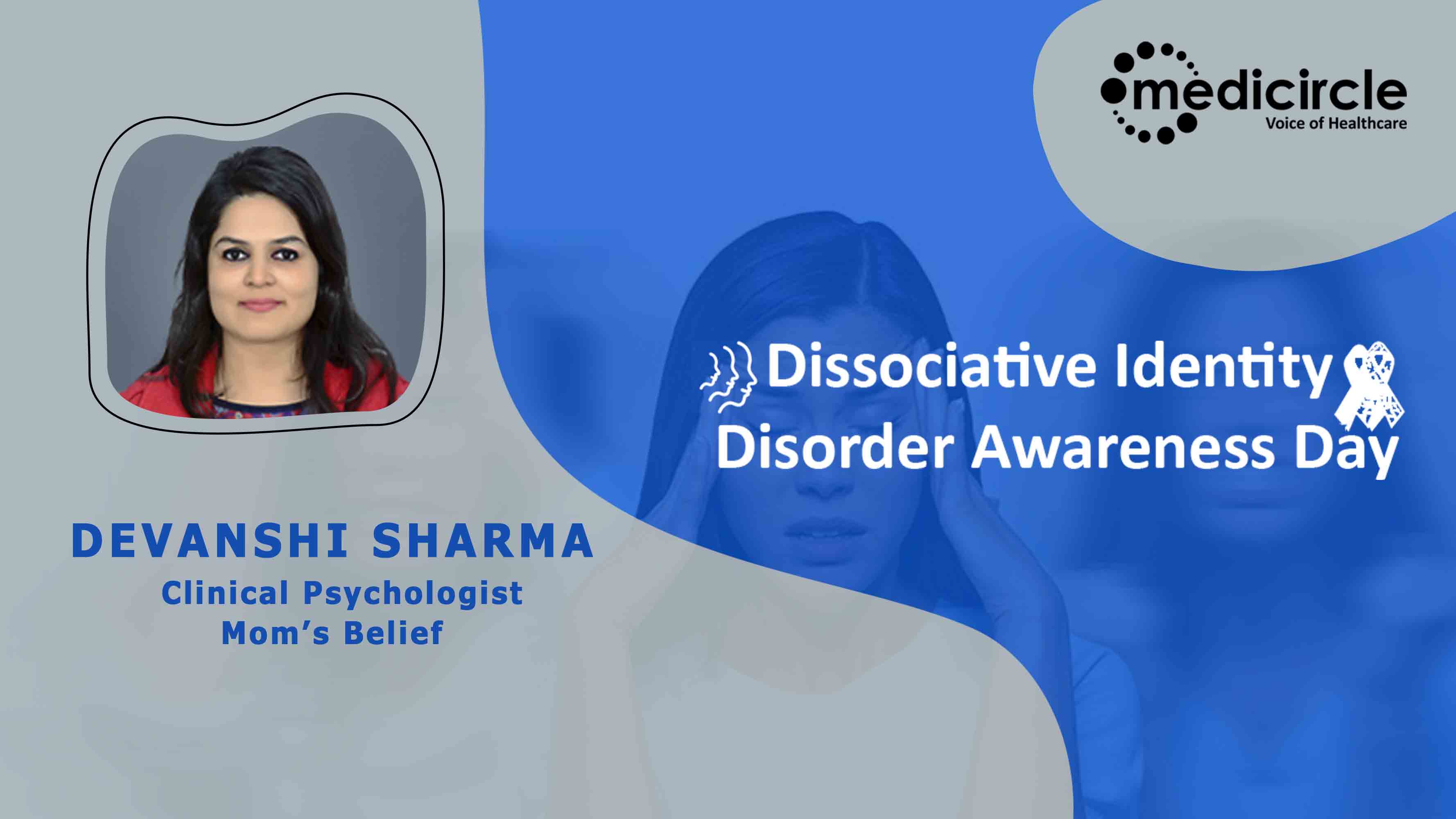Dissociative Identity Disorder (DID) was earlier called Multiple Personality disorder. It often goes unnoticed among the general population. Those who suffer lead a terrifying and disturbing life. Dissociative Identity Disorder Awareness Day which is observed each year in March aims to spread this disorder’s existence and creates compassion towards the people going through it. Medicircle is conducting an exclusive series on the occasion of Dissociative Identity Disorder (DID) so that people can understand the disorder directly from the experts.
Devanshi Sharma is a clinical psychologist in Mom’s Belief Gurgoan. She has 10 + years of academic experience and 5 + years of professional experience in the field of clinical psychology and allied branches. She holds multiple licensing of the field at the international level.
The coping mechanism of Dissociative Identity Disorder (DID)
Devanshi Sharma emphasizes, “Dissociative Identity Disorder (DID) is a very commonly shown disorder in movies and around us because it fascinates a lot of people. The prime problem behind this disorder is that sometimes people cannot cope with this stressful situation. They do not have the correct means to support them like lack of support of family. These people do not have correct coping mechanisms to deal with stress. Dealing with stress is a psychological defense mechanism. This results in different personas in a particular person. "
It is important to vent out and express your feelings
Devanshi Sharma gives an example and explains, “ For example, I am a very submissive kind of person who suppresses her feeling, stays quiet, cannot express, talk about worries or cannot cry. In this case, I cannot vent out or express my feelings and worries. This leads to building an aggressive personality over time. There can be a situation where there can be switching over of this aggressive personality. These things can lead to the development of personality disorder. If this goes untreated, it can lead to complications. In India, there is a lack of mental health awareness which makes it a misunderstood psychological disorder.”
Dealing with specific behaviors to prevent the occurrence of Dissociative Identity Disorder (DID)
Devanshi Sharma informs, “The occurrence of Dissociative Identity Disorder (DID) starts with the people in childhood itself. Every child will not go through it but the majority will. Every child has a “ME” time where he plays with toys and phantomized things. A child may pretend play during his early years. But when pretend play becomes extremely personalized in a child, the parents must be aware of it. Modern parenting is all about having a good friendship with your child. As soon as the parents start realizing odd and unusual behaviors, it takes time to take action as it is a “red flag” for parents. The child may not be verbal. So in this case, the parents can pretend to play with them so that the child can vent out. Relating to characters and pretend to play with the child is very important. It is essential to know the thought process about the child to put it into action.”
Lack of awareness about Dissociative Identity Disorder (DID)
Devanshi Sharma states, “A lot of the population is below the poverty line or the literate levels. It has been seen that Dissociative Identity Disorder (DID) is very prevalent in them due to lack of knowledge as they cannot catch up with the signs. This is specifically for those parents who do not have an understanding of it. If your child is showing any unusual behaviors, kindly do not ignore them. If you cannot control this behavior of your child, consult a professional who can help you”
Patients suffering from Dissociative Identity Disorder (DID) cannot be harmful to others
Devanshi Sharma states, “It is unlikely that people suffering from Dissociative Identity Disorder (DID) will not harm others or themselves. The thin line between psychosis or schizophrenia and Dissociative Identity Disorder (DID) is that these patients are very careful with their movement. They may threaten to harm somebody but it is unlikely that they will do something like that. Giving them enough attention is important so that they do not dissociate into other personalities. Reassurance helps the person feels secure which will prevent them to fall into this phase. Also, Dissociative Identity Disorder (DID) is commonly seen in females. Suppression has primarily been forced on women in our Indian setup. It is important for females to voice out their opinions."
Therapies can help Dissociative Identity Disorder (DID)
Devanshi Sharma says, “It is very difficult for the family to accept that there is something wrong with them. Medications can help patients suffering from Dissociative Identity Disorder (DID) calm down a little with aggression and overactivity. The state of Dissociative Identity Disorder (DID) cannot be treated with medications. Therapies are required for the same. You have to counsel and psycho educating the family members about the loopholes in family dynamics. Once the person is in a non-dissociative state, treating with cognitive-behavioral therapy (CBT) can help. We have to work with family members of the patient suffering from Dissociative Identity Disorder (DID). There is no harm in taking help to bring about positive change.
(Edited by Dr.Rati Parwani)

 Devanshi Sharma gives insight into Dissociative Identity Disorder (DID). She gives an overview to family members about the right way to deal with patients suffering from Dissociative Identity Disorder (DID).
Devanshi Sharma gives insight into Dissociative Identity Disorder (DID). She gives an overview to family members about the right way to deal with patients suffering from Dissociative Identity Disorder (DID).










.jpeg)











.jpg)








